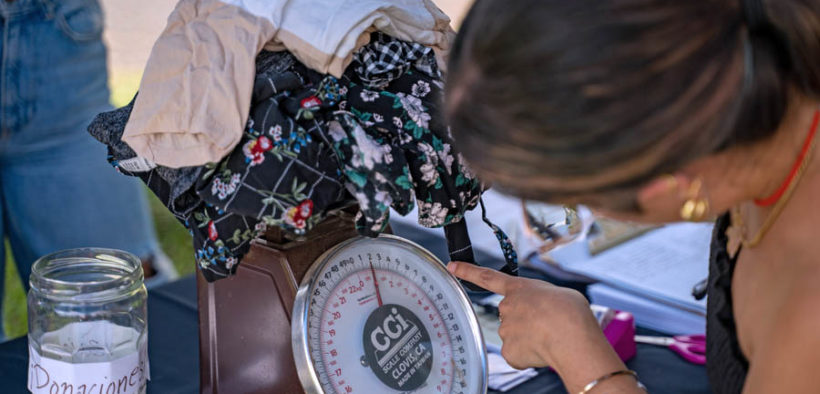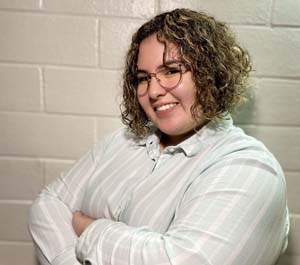Puerto Rico keeps pre-owned clothes out of landfills via swaps, resale

Puerto Rico is fully embarking on a trend that is keeping pre-owned clothing out of the island’s already bursting landfills with stores, online shops and “swapping” events gaining strength, while promoting a circular economy.
Over the weekend, people from throughout the island converged in Aibonito for Bastidor Puerto Rico’s annual “Swap Party,” an event in which people brought used clothes to exchange with each other.
This year’s swap party was in collaboration with Trama, an agroecological farm in Aibonito — focused on natural textiles — and Certela, an up-and-coming upcycling company also based in Aibonito, which collected approximately 300 pounds of textiles.
Bastidor PR started in 2018 after a $5,000 investment and is an online thrift store dedicated to curating vintage and used clothes as well as selling them, said Sandrimar Aponte-Maldonado, Bastidor PR’s owner.
“The idea is that not only Bastidor hosts the Swap Parties, but that other people become empowered and want to host a Swap Party themselves,” said Aponte.
“For that, I created a guide so that other people can also get it and want to do it and as we already have the experience, they could always call us to collaborate,” said Aponte-Maldonado.
Aponte also explained how all her current collaborations have been with women and how much it means to her that they are the voice of the community and her project.
“I like to have collaborations with women because I recognize that we’re still a disadvantaged group and being able to create more employment opportunities outside of the traditional workplace is important to me,” said Aponte-Maldonado.
Another local initiative is Closet Sustentable, which started in 2017 and is a thrift store that has been located in the Pop-Up Closet Collab in Bayamón since 2020.
The owner of both concepts, Francheska Nazario, started in the local market in Santurce in 2015, selling hand-made pieces for kids, but participated in buying used stuff for her children. After her clients suggested she take on the thrift store market, she dove in.
“If I see a person or family that is in need of clothes, I help them, because I have a social conscience, an environmental conscience and I as a person grew with my business, always willing to help others,” said Nazario.
“I think approximately 20,000 pieces of clothing have passed through my hands and those are the pieces that reach me, but the pieces that don’t get here, the ones that are thrown away…it’s too much,” said Nazario.
“I want to open at least four more Pop-Up Closet Collab locations throughout the island and help businesses that are starting out to find a space, and all of them will have a Closet Sustentable,” added Nazario
Bastidor PR and Closet Sustentable representatives explained how their businesses are part of a circular economy, and how they do their part in educating their customers and helping them as they exchange pieces for store credit.
“It’s important that all waste finds that space to regenerate and come back to life without having to go turn to new items,” said Nazario.
According to a report by CNN Business, demand for secondhand clothing and other items was already strong heading into the pandemic, and statistics from GlobalData showed that 82% of Americans, some 272 million people, are currently buying or selling secondhand goods.
Most of those consumers said inflation weighed on their decision to enter the secondhand market, with saving or making money the prime motivation.
In Puerto Rico, there are dozens of second-hand stores already in the circular economy trend, namely El Pulguero in Arecibo, De Vuelta Thrift in Aguadilla, La Casita de Victoria in Añasco, Alijo in Guánica, El Bazar Thrift Shop in Rincón, Embeleco in San Juan and Twist Second Hand in Villalba, among others.












